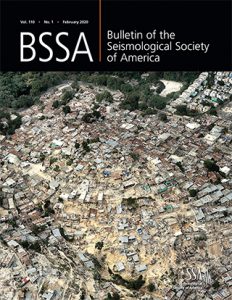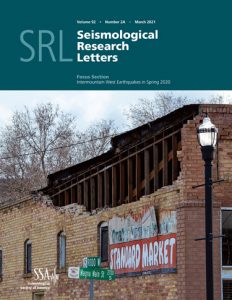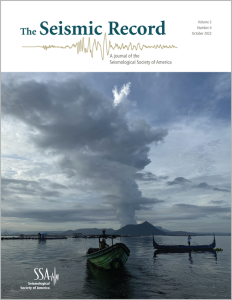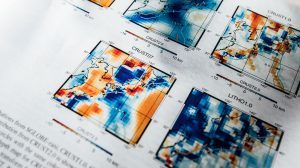Our Publishing Program

The SSA journals program is key to the Society’s core purpose of advancing seismology and the understanding of earthquakes for the benefit of society. Our publications help us advance scientific integrity, encourage scientific collaboration and foster the professional development of scientists and engineers.
We rely on our editors and reviewers, along with a team of scientific publication professionals, to achieve these goals. They are essential to the rigorous peer review, prompt publishing, and global presence and excellent reputation for each of our three journals.
SSA believes that volunteer professional service by editors and reviewers is part of an individual’s professional responsibility. Volunteer work on our journals provides a critical service to your peers in the seismological community, sharing in the effort of disseminating important research. This volunteer service also offers opportunities for personal professional development and networking.
How the Journals Support Our Society

Revenue from our three journals supports SSA’s efforts to advance our discipline. Subscriptions paid by libraries and fees paid by authors account for the revenue that covers the cost of producing and maintaining high-impact journals that have found a multidisciplinary audience.
As a small scientific society, SSA also invests revenue in the Society’s operating costs and its activities that benefit the community. SSA depends on this essential income to produce the Annual Meeting; provide travel grants, professional development training and discounted registration fees for its student and early-career members; and conduct public policy programs that target Capitol Hill. Without these journal subscription and author fees, the Society would not be able to carry out these vital programs for the community.
The Role of Our Publications Committee

The Publications Committee provides general supervision over the scientific publications of the Society and develops Society-wide publications policies, seeking Board input and approval as appropriate.
Each journal is editorially independent, and the editorial content of each journal is the responsibility of the respective Editor-in-Chief and Board of Associate Editors. The policies that govern the submission and publication of content may be found on the Society’s website.
The Publications Committee chair will be responsible for adjudicating any conflicts of interest, ethical misconduct and complaints from authors that cannot be resolved by the journals’ respective Editors-in-Chief. The chair works with the Executive Director who directs the Society’s publishing operation.
Conflict of Interest Standards for Journal Editors
SSA is committed to upholding the integrity of the work published in the Bulletin of the Seismological Society of America (BSSA), Seismological Research Letters (SRL) and The Seismic Record (TSR). Scientific research, and the preparation of the results, must be free of any impropriety or undisclosed conflicts of interest.
SSA’s conflict of interest standards for journal editors is based on the standards and best practices developed by the Committee on Publication Ethics (COPE). Under these guidelines, a conflict of interest (COI) is defined as a set of conditions in which professional judgement concerning a primary interest (such as validity of research) tends to be unduly influenced by a secondary interest (such as financial or material gain).
 Other forms of COI include personal, academic and intellectual issues. SSA recognizes that COI are often unavoidable, but strives to provide a clear and consistent path for declaring and taking action on COI when it arises.
Other forms of COI include personal, academic and intellectual issues. SSA recognizes that COI are often unavoidable, but strives to provide a clear and consistent path for declaring and taking action on COI when it arises.
Before joining an editorial board for an SSA journal, individuals must provide a list of their potential COI for review by the Editor-in-Chief of the journal or the Publications Committee if applying for the Editor-in-Chief position. This may include the potential board member’s other commitments involving journals, books and societies that produce publications that have the same aim and scope, and may therefore compete for the same content, as SSA journals. Editorial board members will be required to update their COI statements on an annual basis.
Our journals are editorially independent, under the purview of the Editor-in-Chief for each journal. In most cases, questions about COI by an editorial board member will be resolved by the journal’s Editor-in-Chief. However, an Associate Editor may appeal any COI decisions to the Chair of the SSA Publications Committee.
Financial Support to Editorial Board Members
While all positions are voluntary, SSA offers each editorial board member a modest honorarium for their service. The Society encourages its editorial board members to solicit submissions from the community and to represent the journals at scientific conference. SSA has a modest pool of travel grants available to Associate Editors to help promote the journals.
